No products in the cart.
Sale
Nagrestipen | CAS No. 166089-33-4
Original price was: $38.00.$22.00Current price is: $22.00.
Nagrestipen (ECI 301) is a chemokine variant peptide with strong antitumor properties. It is applied in studies of cancer, metastasis, and radiation oncology, making it an important tool in tumor immunology and therapeutic peptide research.
Description
Contents
hide
Product Description
Nagrestipen (CAS 166089-33-4), also referred to as ECI 301, is a variant of human macrophage inflammatory protein-1 alpha (MIP-1α), a chemokine involved in immune cell trafficking and inflammatory responses. As a modified chemokine, Nagrestipen has gained scientific attention due to its potent antitumor activity, ability to inhibit metastasis, and potential role in improving cancer immunotherapy strategies.
Scientific Background
Chemokines are small proteins responsible for regulating leukocyte migration and orchestrating immune responses. MIP-1α, in particular, plays a critical role in immune cell recruitment, inflammation, and tumor–immune interactions. However, the native protein has limited stability and may not be ideal for direct therapeutic applications. Nagrestipen was engineered as a variant with enhanced pharmacological stability and unique functional properties, making it a promising candidate for cancer-related research.
Antitumor Potential
Studies have shown that Nagrestipen exhibits:
Inhibition of tumor growth by enhancing immune cell infiltration into tumors.
Reduction of metastasis by disrupting tumor cell migration and colonization.
Improved immune activation through modulation of dendritic cell and T-cell activity.
Radiation sensitization effects, enhancing the therapeutic impact of radiotherapy.
Research Applications
Nagrestipen is utilized in diverse fields of oncology research, including:
Cancer immunology: Evaluating its ability to stimulate antitumor immune responses.
Metastasis studies: Investigating its role in blocking secondary tumor spread.
Radiation oncology: Exploring its synergistic role in enhancing tumor sensitivity to radiotherapy.
Combination therapy: Studying its use alongside chemotherapy, checkpoint inhibitors, or adoptive T-cell transfer.
Tumor microenvironment research: Understanding how Nagrestipen modulates immune infiltration in tumors.
By integrating immune modulation with antitumor properties, Nagrestipen provides a unique dual-action research tool for oncology innovation.
Product Specifications
| Item | Details |
|---|---|
| Product Name | Nagrestipen |
| Synonyms | ECI 301, MIP-1α variant |
| CAS No. | 166089-33-4 |
| Source | Synthetic peptide variant |
| Molecular Type | Chemokine protein variant |
| Purity | ≥98% (HPLC) |
| Appearance | White to off-white lyophilized powder |
| Solubility | Soluble in aqueous buffers and DMSO |
| Storage | -20°C, desiccated, protected from light |
| Stability | Stable for 12 months under proper storage |
| Delivery Form | Lyophilized sterile powder |
| Applications | Cancer research, tumor metastasis studies, immunology, radiation oncology |
Notes on Specifications
Manufacture: Recombinant peptide production with high batch-to-batch consistency.
Validation: Structural confirmation by HPLC and mass spectrometry.
Research Utility: Can be formulated for in vitro assays, tumor models, and immunology studies.
Comparisons: Demonstrates stronger stability and antitumor efficacy than native MIP-1α.
Mechanism of Action
Nagrestipen exerts its effects by modulating chemokine receptor interactions and influencing the tumor microenvironment.
Key Steps
Chemokine receptor binding
Acts primarily on CCR1 and CCR5 receptors, altering immune signaling pathways.Immune cell recruitment
Enhances infiltration of cytotoxic T-cells, NK cells, and dendritic cells into tumor tissues.Antimetastatic activity
Interferes with tumor cell adhesion and migration, preventing colonization in distant tissues.Synergistic effect with radiation
Improves tumor radiosensitivity, making cancer cells more susceptible to radiotherapy-induced apoptosis.Tumor microenvironment modulation
Reduces immunosuppressive signals within tumors, thereby favoring immune-mediated destruction.
Additional Insights
May contribute to angiogenesis inhibition, indirectly reducing tumor blood supply.
Functions as a chemoattractant regulator, reshaping immune surveillance in malignancies.
Potentially enhances immune checkpoint inhibitor therapy outcomes by boosting T-cell activity.
This multifaceted mechanism makes Nagrestipen a versatile anticancer research peptide with applications in multiple oncology domains.

Side Effects
Research Observations
Generally well tolerated in preclinical studies.
No significant systemic toxicity at experimental doses.
Mild immune-related effects, consistent with its role as a chemokine variant.
Potential Risks
Overstimulation of immune responses may lead to transient inflammation.
Long-term systemic use in research animals may require monitoring of cytokine balance.
Stability concerns in solution formulations if not properly stored.
Laboratory Safety Notes
Research use only; not for human therapeutic use.
Store under recommended frozen conditions.
Use appropriate personal protective equipment during handling.
Disclaimer
This product is for research use only. It is not intended for human use, diagnosis, treatment, or therapeutic application.
Keywords
Nagrestipen, ECI 301, MIP-1α variant peptide, CAS 166089-33-4, anticancer peptide, tumor metastasis inhibitor, radiation oncology peptide, immunotherapy peptide, chemokine variant, tumor microenvironment modulator.
Shipping Guarantee
We provide global shipping services:
Customs-Cleared & Tax-Inclusive: Delivered without extra import paperwork.
Full Compensation: 100% coverage for loss or damage during transport.
Efficient Delivery: Secure and trackable worldwide logistics.
Transaction Guarantee
We offer flexible and safe payment options:
T/T bank transfer
PayPal
Cryptocurrencies (BTC, ETH, USDT, etc.)
More methods available upon request
Our process ensures transparent and secure research procurement.
Additional information
| Weight | 0.8 kg |
|---|---|
| Dimensions | 56 × 52 × 56 cm |
What is Nagrestipen?
A human MIP-1α variant peptide with antitumor activity.
What is the CAS number of Nagrestipen?
166089-33-4.
What are its main applications?
Cancer research, tumor metastasis studies, and radiation oncology.
Is Nagrestipen the same as ECI 301?
Yes, Nagrestipen is also known as ECI 301.
How does it work?
By binding to chemokine receptors and enhancing immune cell infiltration into tumors.
Does it prevent metastasis?
Yes, it interferes with tumor cell migration and colonization.
Is it stable?
Yes, stable for 12 months at -20°C under dry, dark conditions.
What purity is provided?
≥98% confirmed by HPLC.
Is it toxic?
Preclinical data show low toxicity and good tolerability.
What are potential side effects?
Possible immune stimulation-related inflammation in some models.
How should it be stored?
At -20°C, protected from light and moisture.
Is it for medical use?
No, for laboratory research only.




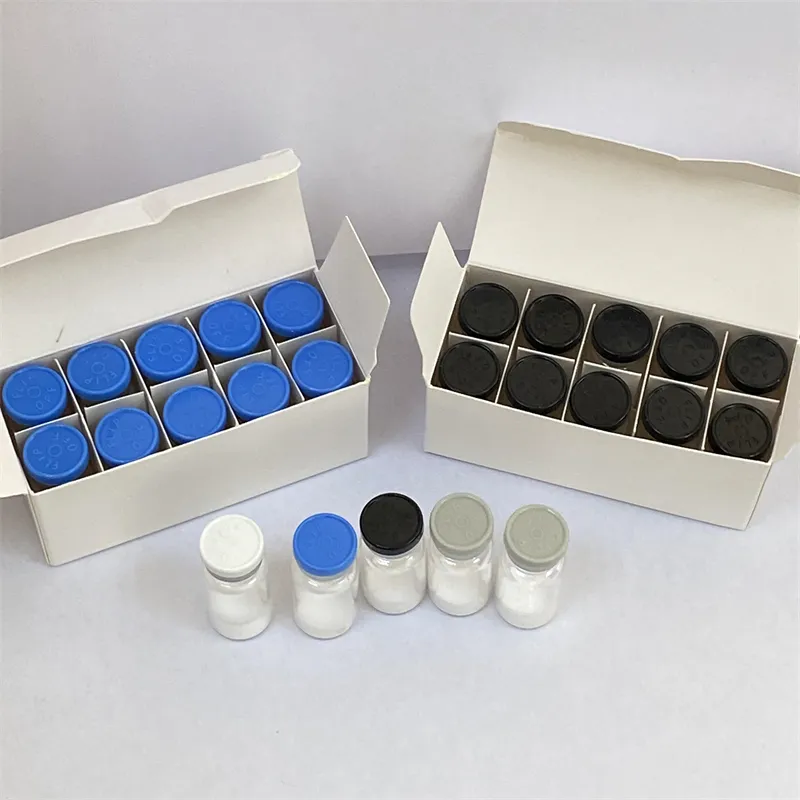


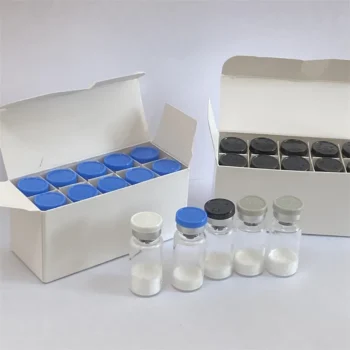
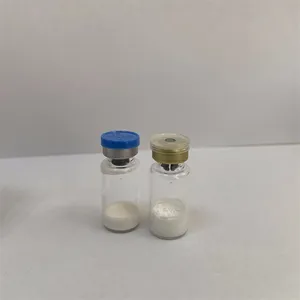
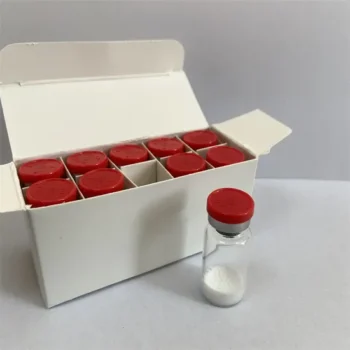

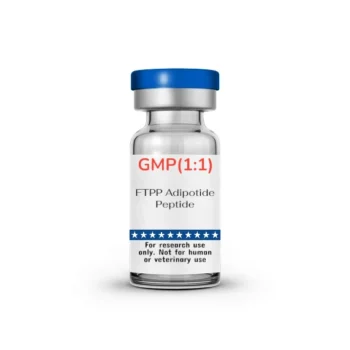
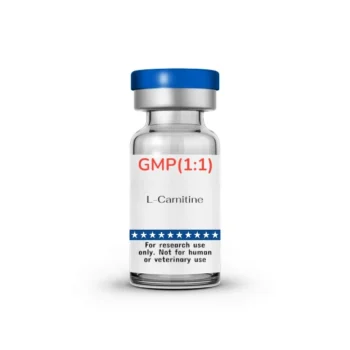
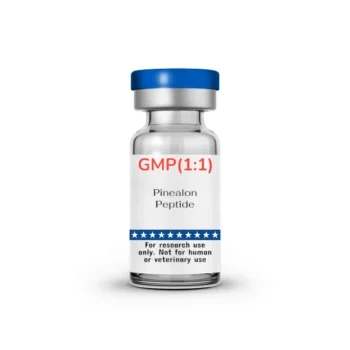


Reviews
There are no reviews yet.